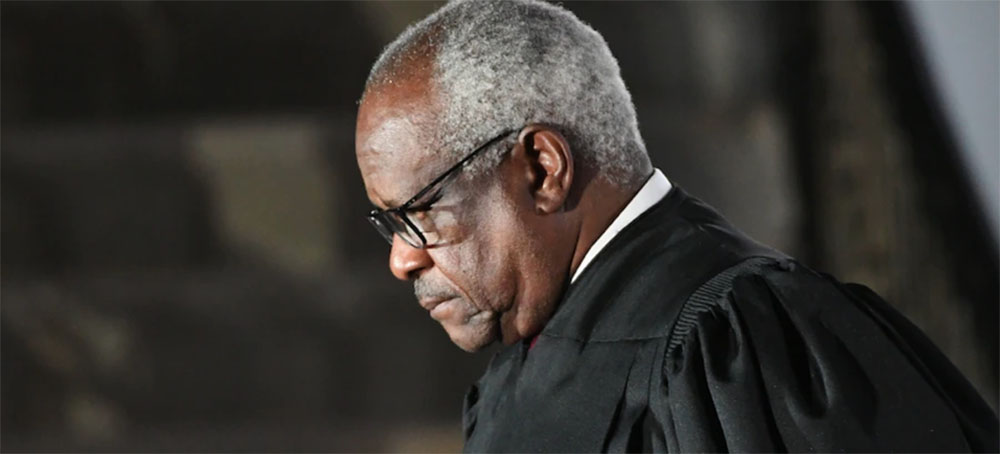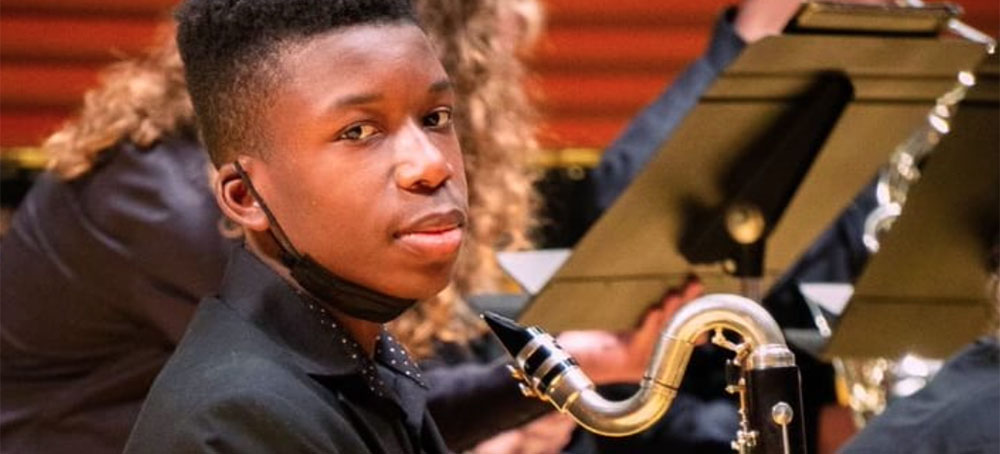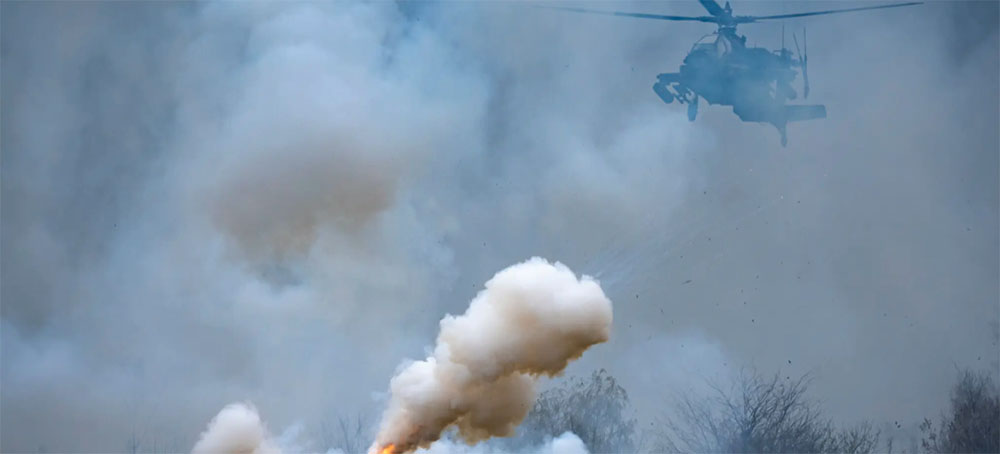Live on the homepage now!
Reader Supported News
Who is he kidding?
Thomas further explained that he thought he didn’t need to report these gifts on annual disclosure forms because when he first joined the court he was told that “personal hospitality from close personal friends” need not be reported.
This is dangerous rubbish. Thomas has been a member of the Supreme Court since October 1991, which means he met his “close personal friend” Harlan Crow after Thomas was already a justice. And Thomas has been accepting Crow’s sumptuous hospitality almost from that start. Which is exactly the problem.
And it’s why disclosure of such lavish gifts isn’t enough to guard the integrity of the court. In this age of billionaires, the law should be: No such gifts!
Today, ProPublica revealed that in 2014, one of Crow’s companies purchased properties in Savannah, Georgia, from Thomas, his mother, and the family of Thomas’s late brother — including one then occupied by Thomas’s mother. Soon after the sale was completed, contractors began work on tens of thousands of dollars of improvements on that home.
A federal disclosure law passed after Watergate requires justices and other officials to disclose the details of most real estate sales over $1,000. Thomas never disclosed his sale of the Savannah properties. That appears to be a violation of the law.
***
I knew Clarence Thomas when he was 23 years old. We never became close personal friends. (Although I made every effort to be friendly toward him at Yale Law School, he always responded to my overtures with an angry scowl. It is of course possible that I was obnoxiously friendly, but I don’t recall him speaking to any of our classmates. It’s also possible that Thomas became warmer and friendlier over the years.)
But once someone becomes a justice of the Supreme Court (or a member of Congress, or a president or governor), friendship often takes on a different meaning. The friendships of powerful people typically involve transactions replete with ulterior motive. This is especially true if the person on the other side of the friendship happens to be a multi-billionaire who pours tens of millions of dollars into political campaigns.
No billionaire’s gift to the powerful comes without strings; Crow’s to Clarence and Ginni has allowed Crow to crow that he hangs out with them — bragging rights that give Crow even more influence among those who’d like to have influence in high places. Not incidentally, Crow has links to groups that file amicus briefs before the Supreme Court.
I have seen it again and again in Washington. Money and influence are traded over fancy dinners, gatherings at luxury resorts, Georgetown soirees, and sleepovers in the Lincoln Bedroom. From these transactions bloom so-called “friendships” in which the line between personal chumminess and powerful quid pro quo dissolves into mutual advantage — and corruption.
It should be noted that since he has served on the Supreme Court, Thomas has been one of the chief enablers of such corruption. In 2010, he supported the court’s notorious Citizens United ruling, which removed limits on corporate spending on politics. But Thomas went even further, issuing a concurring opinion insisting that the court overturn all rules that require transparency in political spending: “This court should invalidate mandatory disclosure and reporting requirements,” he wrote. At the same time, Ginni Thomas was running a conservative nonprofit to fight the “tyranny” of President Obama — a nonprofit that directly benefited from the Citizens United ruling.
For a justice of the Supreme Court who would like to enjoy a lifestyle far above what his relatively meager salary can sustain, and for a justice’s wife intent on wielding even more political clout than her own marital circumstance provides — both in an era when unprecedented wealth has accumulated at the top — the choice of whom to befriend is not a random act. It drips with corruption.
Large gifts to Supreme Court justices give the appearance if not the reality of corruption. No disclosure can remove the taint. And friendship has nothing to do with it (not even if the friend has a thing for collecting Nazi memorabilia).
READ MORE  Thomas’s disclosure history is in the spotlight after ProPublica revealed that a Texas billionaire took him on lavish vacations and also bought from Thomas and his relatives a Georgia home where his mother lives, a transaction that was not disclosed on the forms. (photo: Jonathan Newton/WP)
Thomas’s disclosure history is in the spotlight after ProPublica revealed that a Texas billionaire took him on lavish vacations and also bought from Thomas and his relatives a Georgia home where his mother lives, a transaction that was not disclosed on the forms. (photo: Jonathan Newton/WP)
The misstatements, which began when a family business transferred its holdings to another company, are part of a pattern that has raised questions about how the Supreme Court justice views his obligation to accurately report details about his finances to the public.
But that company — a Nebraska real estate firm launched in the 1980s by his wife and her relatives — has not existed since 2006.
That year, the family real estate company was shut down and a separate firm was created, state incorporation records show. The similarly named firm assumed control of the shuttered company’s land leasing business, according to property records.
Since that time, however, Thomas has continued to report income from the defunct company — between $50,000 and $100,000 annually in recent years — and there is no mention of the newer firm, Ginger Holdings, LLC, on the forms.
The previously unreported misstatement might be dismissed as a paperwork error. But it is among a series of errors and omissions that Thomas has made on required annual financial disclosure forms over the past several decades, a review of those records shows. Together, they have raised questions about how seriously Thomas views his responsibility to accurately report details about his finances to the public.
Thomas’s disclosure history is in the spotlight after ProPublica revealed this month that a Texas billionaire took him on lavish vacations and also bought from Thomas and his relatives a Georgia home where his mother lives, a transaction that was not disclosed on the forms. Thomas said in a statement that colleagues he did not name told him he did not have to report the vacations and that he has always tried to comply with disclosure guidelines. He has not publicly addressed the property transaction.
In 2011, after the watchdog group Common Cause raised red flags, Thomas updated years of his financial disclosure reports to include employment details for his wife, conservative activist Virginia “Ginni” Thomas. The justice said at the time that he had not understood the filing instructions. In 2020, he was forced to revise his disclosure forms after a different watchdog group found he had failed to report reimbursements for trips to speak at two law schools.
A judicial ethics expert said the pattern was troubling.
“Any presumption in favor of Thomas’s integrity and commitment to comply with the law is gone. His assurances and promises cannot be trusted. Is there more? What’s the whole story? The nation needs to know,” said Stephen Gillers, a legal ethics expert at New York University.
Gillers said all three branches of government should investigate Thomas’s compliance or noncompliance with federal ethics law. “The Supreme Court has been the glue that has held the republic together since 1790 with the Civil War the only interruption. We need the public to respect it even when it disagrees with it and to understand why it is important. Generally, the public has,” he said. “But that respect is now in serious jeopardy, and others must do something to stop the free fall.”
Thomas did not respond to emailed questions sent through a court spokeswoman. His wife also did not respond to requests for comment.
Thomas’s income from the firm he describes as “Ginger, Ltd., Partnership” on the financial disclosure forms has grown substantially over the last decade, though the precise amounts are unknown because the forms require only that ranges be reported. In total, he has reported receiving between $270,000 to $750,000 from the firm since 2006, describing it as “rent.” Thomas’s salary as a justice this year is $285,000.
The company’s roots trace back to two lakeside neighborhoods developed decades ago by Ginni Thomas’s late parents in a community in Douglas County, just outside of Omaha.
Ginger Limited Partnership was created in 1982 to sell and lease real estate, state incorporation records show, and its partners were Ginni Thomas, her parents and her three siblings. The firm owned and leased out residential lots in two developments, Ginger Woods and Ginger Cove, collecting rent annually from each occupied plot of land, according to copies of lease agreements on file with the county.
When he was nominated to a federal appeals court in 1990, Thomas listed the firm in a financial statement as one of his wife’s assets — worth $15,000 at the time.
The firm was dissolved in March 2006. Around the same time, Ginger Holdings, LLC was created in Nebraska, according to state records, which list the same business address as the shuttered company and name Joanne K. Elliott, the sister of Ginni Thomas, as manager.
The same month, the leases for more than 200 residential lots in Ginger Woods and Ginger Cove were transferred from Ginger Limited Partnership to Ginger Holdings, LLC, property records in Douglas County show.
Reached by phone, Elliott referred questions about the two companies to Ginni Thomas.
“You could call her and she could answer anything that she wants you to know,” Elliott said before hanging up.
Ginni Thomas is not named in state incorporation records related to Ginger Holdings, LLC.
In his most recent disclosure, in 2021, Thomas estimated that his family’s interest in Ginger Limited Partnership, the defunct firm, was worth between $250,000 and $500,000. He reported receiving an income from it between $50,000 and $100,000 that year.
On Friday, congressional Democrats with oversight of federal courts cited Thomas’s “apparent pattern of noncompliance with disclosure requirements” in calling on the Judicial Conference — the policymaking body for the federal courts — to refer him to the attorney general for an investigation into whether he violated federal ethics laws.
In addition to the recent revelations about Thomas’s financial relationship with Harlan Crow, the Texas billionaire, they cited a period in the 2000s in which Thomas failed to disclose his wife’s employment as required by law until the omission was reported by the watchdog group Common Cause.
Ginni Thomas earned more than $686,000 from the conservative Heritage Foundation from 2003 until 2007, according to the nonprofit’s tax forms. Clarence Thomas checked a box labeled “none” for his wife’s income during that period. He had done the same in 2008 and 2009 when she worked for conservative Hillsdale College.
Thomas acknowledged the error when he amended those filings in 2011. He wrote that the information had been “inadvertently omitted due to a misunderstanding of the filing instructions.”
In some years before those omissions, however, Thomas had correctly reported his wife’s employment.
Thomas failed to report the sale of the three Georgia properties to Crow in 2014, and he also continued to report that he owned a share of those properties as late as 2015, his disclosure forms show. In addition, beginning in 2010, his disclosures described the properties as being located in Liberty County, Ga., even though they were actually located in Chatham County.
Thomas also did not report reimbursement for transportation, meals and lodging while teaching at the universities of Kansas and Georgia in 2018. After the omission was flagged by the nonprofit Fix the Court, Thomas amended his filing for that year. He also amended his 2017 filing, on which he had left off similar reimbursements while teaching at Creighton Law School, his wife’s alma mater.
READ MORE  'Two-thirds of U.S. military personnel are under the age of 30, with the vast majority of those under 25.' (image: WP)
'Two-thirds of U.S. military personnel are under the age of 30, with the vast majority of those under 25.' (image: WP)
Defense officials told service members not to ‘post anything in Discord that you wouldn’t want seen by the general public.’ But by then, hundreds of secret documents had already spilled out.
But Defense Department officials have also struggled to confront the risks of how Discord’s closed channels operate — and the ease with which they can be used to expose military intelligence. Last month, in a detailed guide aimed specifically at Discord users, Special Operations Command, which oversees the country’s most elite forces, told service members: “Don’t post anything in Discord that you wouldn’t want seen by the general public.”
By then, hundreds of classified documents had already spilled onto a Discord server frequented by a 21-year-old National Guard airman, Jack Teixeira, who had used the government secrets, interviews and an FBI charging document suggest, to impress the teenagers and 20-somethings who’d joined the chatroom.
That attempt to flex his military status for online approval ended with Teixeira’s arrest Thursday. On Friday, he was charged with two counts of retaining and sharing classified national defense information, punishable by up to 15 years in prison.
But the arrest doesn’t end the dilemma for the military: how to supervise a young workforce that has access to classified secrets but lives much of its life online — including in corners of the internet where many share a fascination with military hardware and an eagerness to show off for strangers and friends. Two-thirds of U.S. military personnel are under the age of 30, with the vast majority of those under 25.
“Young men who may not feel their life gives them cachet and importance, they’re trying to find that online … often by attaching themselves to the gravitas of war and combat,” said James D. Ivory, a Virginia Tech professor who researches the social dimensions of online communities and video games.
Some of them, he said, seek to overcome feelings of isolation and gain clout with their peers by spending time in these small online communities where they may feel they can push the boundaries and build camaraderie — even though the groups offer only the illusion of privacy and control.
“We’re seeing massive security breaches and potential global instability just because someone was insecure about their popularity,” he added, “and wanted people to know they knew cool stuff about the military.”
Video games are one of the most popular forms of media for the 18-to-21-year-olds who are the target for the Defense Department’s recruiting efforts and make up much of its junior ranks. The military sponsors esports tournaments to drive interest and advertises on the popular game-streaming site Twitch.
Many gamers have flocked to Discord for its fast-moving mix of public and private chatrooms, known as servers, where members can exchange jokes, memes and voice clips in a place largely invisible to the open web. Founded in 2015 in San Francisco, Discord says its 19 million servers attract 150 million active users every month.
Teixeira’s group first met up on a Discord server devoted to Oxide, a YouTube creator known for his gaming clips and detailed breakdowns of combat rifles, body armor and military loadouts. The server, like many on Discord, was frenetic and irreverent: A clip from 2020 shows the room devolving into a chaos of gunfire noises and shouts of “Allahu akbar.”
A close-knit group from that server broke off into its own — named, for a pornographic meme, Thug Shaker Central — where they chatted about guns, games and geopolitics, and exchanged dark and racist jokes, members told The Washington Post.
Teixeira began sharing the documents late last year, FBI investigators said. By last month, a group member had reposted some of them in a separate Discord server, effectively sparking their viral spread.
In the offline world, Teixeira had worked in a relatively low-level IT-focused role as a “cyber transport systems specialist” in the Air National Guard, which gave him access to a computer network hosting top-secret information.
He worked at Otis Air National Guard Base in Cape Cod, Mass., far from the grisly realities of combat. When federal agents arrested him Thursday at his family home in the woody suburb of Dighton, Mass., he was dressed in gym shorts and a green T-shirt.
In the Discord server, though, Teixeira had built a devoted following as “O.G.,” framing himself as a gun lover with a honed sense of combat strategy and intimate access to military secrets. A former Thug Shaker Central member told The Post that O.G. had shared the documents to educate his peers and build social capital on a slice of the internet where he was king.
Teixeira’s profile on the gaming marketplace Steam shows him playing lots of first-person shooters and military simulations with millions of players: the realistic military shooter “Arma 3,” the hardcore survival game “Project Zomboid” and the battle royale shooter “PUBG: Battlegrounds.”
But he also inhabited a die-hard subculture attracted to the precise details of military weapons, technologies and strategies. His ability to use those secrets to gain him credibility within the group, members said, ended up becoming a temptation he could not ignore.
On the server, he talked openly about guns, Catholicism, libertarian politics, and the raids at Ruby Ridge in Idaho and in Waco, Tex., a common flash point for the anti-government fringe. He also posted video of himself firing a rifle while shouting racist and antisemitic slurs.
Although investigators said he used anonymous screen names such as “jackthedripper” and “excalibureffect,” Teixeira proved, ultimately, not hard to find. In a charging document Friday, an FBI agent said his Discord account information, which the San Francisco-based company provided to authorities, had included Teixeira’s real name and home address.
That kind of online bravado is common in Discord gaming groups steeped in the macho, hard-charging culture of tactical shooters and military combat, Ivory said. Some members end up egging each other on toward increasingly cavalier behavior, he said, often because they feel safer in a closed-communal setting than if they were broadcasting their feelings to social media or the world.
That lack of discretion, he said, has led some members to adopt increasingly radical attitudes and behaviors. That’s a potential risk for young service members, he said, particularly those who enlisted with expectations of combat duty but ended up working a job that now plays out largely on a screen.
“Some people may join the military because of the allure of the warrior ethos, and they may not feel very validated sitting in front of the computer all day,” Ivory said.
Discord said in a statement that it is cooperating with law enforcement and declined to comment further. The company said it scans for violent and other rule-breaking content but also depends on volunteer moderators to flag potential threats, probably allowing some risks to go unseen.
In a report by the House select committee investigating the Jan. 6, 2021, attack on the U.S. Capitol, Discord officials were said to have acknowledged that “the risks of relying too much on user moderation when the userbase may not have an interest in reporting problematic content.”
The Defense Department, facing a recruiting shortage, has nevertheless adopted a nationwide strategy of using gaming and online culture to attract new troops, many of whom grew up with Xboxes and iPads and who live much of their lives online.
Nearly every service branch now has an esports team that competes on first-person shooter games such as the Halo franchise and “Valorant,” some of which have their own private Discord servers where service members can chat.
Military esports teams also participate in nationwide competitions and stream their gameplay on Twitch. The Army’s esports Discord server welcomes active-duty Army and National Guard members, as well as contractors, veterans, and their families and friends, encouraging them in a welcome banner to “be all you can be.”
Progressive activists have criticized the military for using Twitch streamers and gaming channels popular with young viewers to promote military life and shape their perceptions about war.
Rep. Alexandria Ocasio-Cortez (D-N.Y.) sponsored a House amendment in 2020 to ban the military from using Twitch to recruit that did not pass. “War is not a game,” she said on Twitter. “We should not conflate military service with 'shoot-em-up’ style games and contests.”
But Amy J. Nelson, a technology expert and foreign policy fellow at the Brookings Institution, said the Discord leaks reflect a broader challenge of how to block the sharing of classified information.
Discord is “a tainted concept now,” she said. “Does the Pentagon still use it? Does it use it officially? Does it use it unofficially?”
The Pentagon’s detailed guide to Discord shows military officials counseling users to be aware of “personal security vulnerabilities” and suggests specific privacy and safety controls for an app that it said allows “friends and communities to stay in touch and spend time together.”
“It may be a private server,” the guide says, “but conversations and photos/videos can be captured by screenshot or recorded and leaked.”
The military command has also published similar guides to Twitch, TikTok, and the dating apps Tinder, Bumble and Hinge, among other apps, recognizing that people in their 20s and younger are likely to be unwilling to give up online habits they’ve held for a lifetime.
The TikTok guide doesn’t even discourage using the popular short-video app, which is banned on military devices but allowed for personal use, though it does recommend settings and guidelines that could limit the risks of an app owned by a Chinese firm.
Roughly 3 million Americans have undergone the months-long process of acquiring security clearance, where they are asked about details of their behaviors and personal histories and made to provide names they might use online. But many Discord servers are invite-only and ask for direct confirmation of members’ authenticity, blocking them from public view.
President Biden said in a statement Friday that he had directed the military to “further secure and limit distribution of sensitive information.” Defense Secretary Lloyd Austin said Thursday that he had ordered a review into the Pentagon’s intelligence controls and reminded anyone with classified access that they had “a solemn legal and moral obligation to safeguard it.”
The leaks could amplify calls in Washington to more closely monitor chatrooms and social media. Such a measure is not unheard of: Undercover governmental investigators have in the past closely monitored jihadi forums organized by Islamic State and al-Qaeda militants for the purposes of investigation or intervention.
But civil liberties advocates have argued such tactics could violate Americans’ First Amendment rights of free expression or their Fourth Amendment protections against unreasonable searches.
“We do not have nor do we want a system where the United States government monitors private internet chats,” Glenn Gerstell, the former general counsel of the National Security Agency, told NBC on Wednesday.
On Discord, some servers already joke about the possibility of being surreptitiously infiltrated by the government. Using a word first coined on the anything-goes message board 4chan, people commonly accuse others of being “glowies” — federal agents whose out-of-place behaviors are so obvious that they practically glow.
But surveilling gamer chatrooms might also end up pushing away the same young recruits the military desperately needs, all for questionable practical gain: The internet is full of ways to anonymously share images, videos and documents.
Before the Discord leaks, similar breaches had played out on the official message board of the ultrarealistic combat game “War Thunder,” with users from around the world divulging secret information about anti-armor shells and attack helicopters.
One message board poster, who claimed to serve in a French military unit, uploaded a classified manual in hopes of winning an argument about the turret rotation speed of a Leclerc S2, one of the nation’s main battle tanks.
Jordan Uhl, a progressive activist who has criticized the use of Twitch for recruiting, said the military’s heavy advertising through video games and Discord chats could end up backfiring by attracting young people with a “warped impression” of military life.
“This is a new challenge for the military: When you have all the people who grew up in a purely digital age enlisting, the lines are blurred for how they communicate,” he said.
“People are growing up playing military videos and consuming military propaganda through YouTube in ways prior generations never experienced,” he added. “The way they’re recruiting and the places they’re recruiting, the military is going to get more people like this.”
READ MORE  Ralph Yarl. (photo: GoFundMe/Daily Beast)
Ralph Yarl. (photo: GoFundMe/Daily Beast)
Ralph Yarl was trying to pick up his younger brothers from a friend’s house, but mistakenly went to the wrong address.
The boy, Ralph Yarl, “mistakenly went to the wrong house” in a Kansas City neighborhood on Thursday, according to a GoFundMe set up by his aunt to handle medical expenses.
Yarl pulled up the driveway and rang the doorbell. “The man in the home opened the door, looked my nephew in the eye, and shot him in the head,” his aunt, Faith Spoonmore, wrote. “My nephew fell to the ground, and the man shot him again.”
Still conscious, Yarl ran for help, but Spoonmore alleged that he “had to run to 3 different homes” before someone came to his aid, and then only after ordering the 16-year-old to lie on the ground with his hands up. He was hospitalized, but “has a long road ahead mentally and emotionally,” the fundraiser page reads.
The alleged gunman, who has not been identified, was taken into custody and brought to a police station to give a statement. Placed on a 24-hour hold, he was released pending further investigation, something the chief of the Kansas City Police Department spent much of a short Sunday press conference justifying.
“The vast majority of cases to include violent crime involve the suspect being released pending further investigation,” Chief Stacey Graves said. “In this case, the prosecutor requires more information from investigators that would take more than 24 hours to compile throughout the weekend.”
She explained that detectives were working to compile forensic evidence and take a formal statement from Yarl. It was not clear if he was in a condition to make a statement on Sunday.
“We want the community to know that we are committed to justice in this case and every case and work everyday to seek that justice for all victims of all crimes,” Graves said, adding that she personally was “listening” and understood the community’s “concern.”
On Sunday afternoon, hundreds of protesters gathered to demonstrate outside of the alleged gunman’s home on 115th Street—a short drive from 115th Terrace, the friend’s house where Yarl’s brothers had actually been located.
“That right there,” Spoonmore said at the gathering, gesturing to the house, “is a lot of hate. This right here”—she pointed to the crowd—“is a lot of love.”
Civil rights attorneys Lee Merritt and Ben Crump said they have offered pro bono services to the family, according to the Kansas City Star. “Ralph is fighting for his life,” Merritt tweeted on Sunday morning. “This man must be arrested. We are on our way.”
On the fundraising page, Spoonmore called her nephew “a fantastic kid” who dreams of attending Texas A&M for chemical engineering.
Last summer, she said, he attended the Missouri Scholars Academy, a program for high-achieving students. Yarl is also a talented bass clarinet player who leads a section of his school’s marching band, and plays multiple instruments in the Northland Symphony Youth Orchestra.
“Ralph can often be found with a musical instrument,” Spoonmore wrote. “He loves them all.”
She also noted that Yarl was lucky to be alive, explaining, “He is our miracle. We have heard these types of stories many times, and unfortunately, most black boys are not alive to get another chance.”
“This was not an ‘error.’ This is a hate crime,” she posted on Instagram soon after the incident. “You don’t shoot a child in the head because he rang your doorbell.”
READ MORE  American soldiers from the 101st Airborne Division firing artillery during an exercise at the Mihail Kogalniceanu Air Base, near the Black Sea port of Constanta, Romania, last month. (photo: Vadim Ghirda/AP)
American soldiers from the 101st Airborne Division firing artillery during an exercise at the Mihail Kogalniceanu Air Base, near the Black Sea port of Constanta, Romania, last month. (photo: Vadim Ghirda/AP)
With Russia’s Invasion of Ukraine, NATO Readies for Combat on Its Borders
Steven Erlanger, The New York Times
Erlanger writes: "Russia’s invasion of Ukraine, the costliest conflict in Europe since World War II, has propelled the North Atlantic Treaty Organization into a full-throttled effort to make itself again into the capable, war-fighting alliance it had been during the Cold War."
READ MORE  Air Guardsman Jack Teixeira has been arrested as part of an investigation into the leak of documents traced back to chat platform Discord. (photo: AFP)
Air Guardsman Jack Teixeira has been arrested as part of an investigation into the leak of documents traced back to chat platform Discord. (photo: AFP)
Classified document dump is a reminder that the internet is hard to control
What the members of Congress didn’t know was that state secrets had been trickling out for months on social media and were beginning to circulate in ever-wider online forums — not on TikTok, but on U.S.-owned Discord. In the two weeks after the TikTok hearing, those classified documents would make their way into public view on U.S.-owned Twitter — and remain there for days, as owner Elon Musk mocked the idea that he ought to remove them.
The leaks, which included assessments of the Ukraine war and revelations of U.S. spying, didn’t stem from any foreign adversary’s sinister plot. Rather, they appear to have stemmed from a 21-year-old U.S. National Guard member’s desire to impress his online pals.
The Discord document dump is the latest in a colorful 21st-century tradition of secrets spilled online, from WikiLeaks’ earliest uploads to Russian operatives’ hack of the Democratic National Committee. At a time when swaths of the U.S. government are fixated on Chinese spycraft, it serves as a reminder that information leaks in the internet age can come from just about anywhere — a risk the U.S. government has generally accepted as a price of free speech, said Anumpam Chander, a law professor at Georgetown University and an expert on technology regulations.
“The internet was never designed with national security at its heart,” Chander said. “It’s inherently vulnerable.”
The hypothetical threats posed by TikTok’s Chinese ownership aren’t about leaked classified documents. They include fears that China’s government might demand or covertly gain access to data on the app’s American users, or persuade the company to secretly manipulate its algorithms in ways that promote or suppress certain ideas. In particular, the ban of TikTok from government devices is meant to guard against the possibility that Chinese Communist Party members or officials could gain access to the personal data of U.S. officials.
There’s no hard evidence that any of those things have happened. Both the Chinese government and TikTok insist they never will, and TikTok has taken unusual steps to limit the exposure of Americans’ data, such as not tracking their precise location using GPS, as countless other mobile apps routinely do. And the Pentagon has official guidance for troops on how to use TikTok safely.
Still, the theoretical possibility has sparked bipartisan furor in Washington. Not content with the government devices ban, some congressional Republicans and Democrats, and the Biden administration, are scrambling for a legal basis on which to ban the app altogether. One approach would give the secretary of commerce special powers to crack down not just on TikTok, but also on whole categories of apps whose parent companies are based in countries designated as “foreign adversaries.”
The fears are understandable. China is known to spy. Barriers between Chinese companies and the Chinese government are flimsy. And President Xi Jinping has put the screws to tech firms in the past.
Yet if the goal is to plug the holes in the U.S. information sphere, banning TikTok and other foreign apps might be like a Band-Aid on a colander.
Some 3 million Americans hold government security clearances, and thanks to the internet, any one of them can connect with, send information to, or get hacked by pretty much anyone else, anywhere in the world, at any time. Edward Snowden, who revealed National Security Agency surveillance programs, and Reality Winner, who leaked an intelligence report about Russian election interference, intentionally publicized classified information for political and moral reasons. A staffer at the DNC clicked a link in a phishing email that gave Russian hackers access to Chairman John Podesta’s login credentials. U.S. forces abroad have inadvertently exposed the location of secret facilities through their use of fitness apps.
Now Jack Teixeira, a 21-year-old member of the Massachusetts Air National Guard, is accused of uploading tranches of classified documents to a private chat group on the social app Discord, mostly just because he could. Reporting indicates that one member of his private chat then uploaded some of the documents to a much larger Discord group, and they gradually spread from there — ultimately making their way onto Twitter and into public view.
Over the years, the largest social networks have attempted, with mixed results, to constrain the spread of certain types of information deemed harmful, from covid-19 conspiracy theories to deepfake videos to hacked private information, especially in public-facing feeds. But keeping a given class of material off the internet entirely has proved nearly impossible; if Facebook and Twitter won’t host Alex Jones or a mass shooting video, some other site surely will. Even child pornography flourishes in the internet’s darker alleys, despite being illegal and aggressively policed.
Chander acknowledges it’s possible that China could obtain compromising information on U.S. officials via secret back doors in an app like TikTok. It’s just that there are so many other ways to obtain compromising information on the internet that the focus on TikTok can feel like a distraction — especially given that the type of information TikTok gathers is “not your typical blackmail material, or your typical espionage material,” Chander said.
“The general tenor of the conversation at the national level has focused our attention on TikTok as if the American people are supposed to galvanize to protect ourselves” by deleting a Chinese-owned short-video app, he said. “Why aren’t we being taught how to protect ourselves from ransomware? Why isn’t there a national campaign to prevent phishing efforts? The Russian [Internet Research Agency] showed they did not have to own Facebook to own Facebook.” Such initiatives, Chander believes, would do far more to secure Americans’ information than a TikTok ban.
The Washington Post reached out to more than a dozen lawmakers active in discussions about national security and technology for comment. Several expressed concerns about the leak, but most did not return requests for comment, and none addressed what, if anything, should be done about the role of platforms used to disclose sensitive materials.
Meanwhile, Montana on Friday became the first state to pass a law banning TikTok altogether.
READ MORE A home in Lake Tahoe is covered in snow as record levels covered the Sierra Nevada this winter. As spring brings warmer weather, a rapid melt could increase the flood risk. (photo: Fred Greaves/Reuters)
A home in Lake Tahoe is covered in snow as record levels covered the Sierra Nevada this winter. As spring brings warmer weather, a rapid melt could increase the flood risk. (photo: Fred Greaves/Reuters)
The snowpack contains enough water to fill downstream reservoirs ‘multiple times over’, which could mean a rapid runoff
The snowpack, which stands at 233% of the 1 April average, contains enough water to fill downstream reservoirs “multiple times over”, said climate scientist Daniel Swain in an online briefing this week. “That’s a big deal,” he added.
Conditions could be perilous even without a big heatwave or late-season warm rain, Swain said. The combination of spring’s warmer weather and sunny skies could be enough for a rapid runoff.
It’s a challenge facing many states across the west, which have all had to grapple with an extreme shift in conditions after years of devastating drought. The climate crisis, which intensifies extremes, is expected to fuel broad swings into the future.
A rapid spring snowmelt is already wreaking havoc from the south-west to the Rockies. Emergency crews in New Mexico have had to perform water rescues from submerged vehicles as Arizona residents spent days working to stave off flood waters from their homes.
Officials have been left to navigate the challenges without a playbook. These types of disasters are increasingly difficult to predict.
The climate crisis has made models and forecasts that rely on historical data less reliable. Even with good data, the intel only goes so far, according to officials with the California department of water resources.
“We don’t actually know how the snow will melt,” said Jenny Fromm of the US army corps of engineers at a briefing on Tuesday. Small shifts in solar radiation and groundwater flow can make a big difference in outcomes.
“Climate change has had other plans for us these last ten years,” said David Rizzardo, manager of the California department of water resources hydrology section, explaining how the increase in outlier events has rendered statistics and models less reliable.
It’s hard to know at this point, whether conditions will shift for better or worse, he continued: “We may be adding more snow or rain. We may go through a really warm, super dry period that evaporates water in the system. Those can both affect how much water actually comes down.” What officials do know, however, is that many of the areas at risk of being worst hit have long had to grapple with climate extremes, including weathering years of devastating drought conditions and sweltering heat.
“A lot of those communities are the same communities that have been affected for years,” said José Pablo Ortiz Partida, a senior climate scientist with the Union of Concerned Scientists, a non-profit advocacy organization.
Scientists, officials and advocates are particularly concerned about communities tucked into California’s San Joaquin Valley, an agricultural hub that hugs the state’s mountainous middle.
Winter storms that hit the region in March caused destructive flooding, damaging homes, farmland and crucial infrastructure. Counties are already estimating billions of dollars in damages, with millions more needed to fund badly needed repairs.
Along with resources, it will take time to fix levees that ruptured, to drain waters still submerging streets, and for homes and businesses to dry. Recovery has been slow – and time is running short. Peak months for snowmelt runoff in many of these areas are in April and May.
Even as the region races to prepare for dangerous water flows, impacts of the drought linger here. “For some it is a problem of water quantity – but for others it is a problem of water quality,” Ortiz Partida said, noting that many communities in this region still struggle to access clean water for drinking and hygiene. “This is something that hasn’t been fixed despite the large amount of precipitation that we’ve had.”
The area has also had to grapple with extreme heat. Temperatures here soar in the summers, exacerbating pollution problems and threatening the health of many who must endure without access to air conditioning.
He faulted authorities for not helping the communities to prepare better or respond quickly to the emergencies they face. Noting the role that climate crisis has played in these cycles of crisis, he emphasized that a lack of resources and political representation in these rural disadvantaged towns has hampered their ability to adapt. “It creates these inequitable preparations for extreme events.”
Experts warned that the risks California and the wider American west is facing will only get worse as the climate crisis intensifies.
“The risk of droughts – and also severe floods – is rising in a warming climate,” said Swain, the climate scientist. While it’s hard to attribute any one weather event to climate crisis, the harsh swings between wet and dry fit the pattern predicted by models and scientists, he noted. Meanwhile, the impact of those extreme weather events is felt longer, he said, with the dangers posed by the series of storms that hammered California now lingering into the summer. “The big melt has begun,” he added. “The legacy of the winter is not over yet.”
Follow us on facebook and twitter!
PO Box 2043 / Citrus Heights, CA 95611



No comments:
Post a Comment
Note: Only a member of this blog may post a comment.